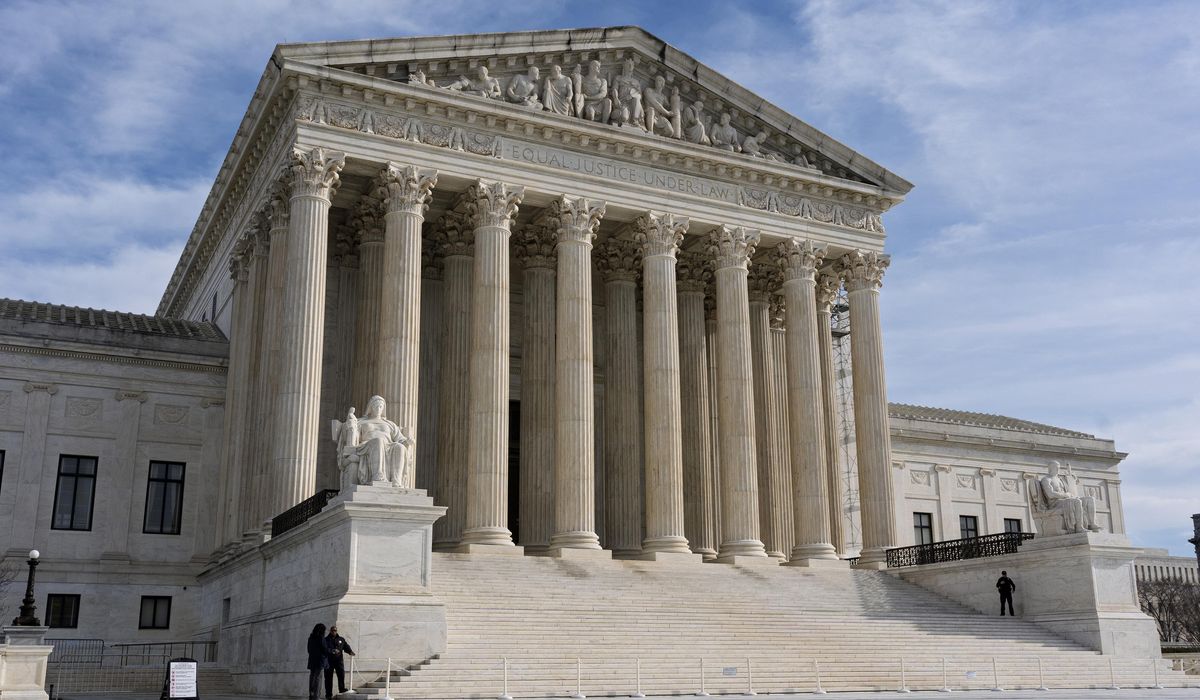


When the Supreme Court justices return for their February sitting later this month, they’ll take up three cases grappling with prisoner rights.
The legal battles include a death-row inmate requesting post-conviction DNA testing, prisoners in another case challenging standards for revoking their supervised release, and a third dispute involving a prison worker accused of sexual abuse.
In the first case, Gutierrez v. Saenz, which will be argued on Feb. 24, Ruben Gutierrez challenges a 5th U.S. Circuit Court of Appeals ruling denying him post-conviction DNA testing.
Gutierrez was convicted in the 1998 murder of an 85-year-old woman. He and two accomplices planned to lure Escolastica Harrison out of her mobile home where they could steal $600,000 she kept inside. Two people entered the home and stabbed her to death with screwdrivers, according to court records.
Gutierrez claims he was not aware that Harrison would be murdered.
According to his court filing, the crime scene contained “a blood-stained shirt belonging to Harrison’s nephew and housemate, nail scrapings from Harrison, a loose hair wrapped around one of her fingers, and various blood samples from within the mobile home.”
“These items were collected from the crime scene by detectives and continue to be preserved because they contain biological material that can reveal who was in Harrison’s home during the crime. Yet this critical evidence has never been tested,” Gutierrez’s lawyers wrote in his filing.
The 5th U.S. Circuit Court of Appeals ruled Gutierrez lacks standing to challenge the post-conviction DNA test findings. In Texas, even an accomplice can be convicted of capital murder.
Texas Attorney General Ken Paxton, representing Cameron County District Attorney Luis Saenz, who handled Gutierrez’s case, said Gutierrez is not entitled under state law to the DNA testing to challenge his sentence. Identity was not an issue in his court trial, and the state argues that Gutierrez should have requested DNA testing earlier in his proceedings.
The high court stayed the execution while the justices are weighing the case.
The other two prisoner rights disputes will be heard the next day, Feb. 25.
The first, Edgardo Esteras v. United States, involves a group of three prisoners who challenge what factors a lower court must consider when revoking a prisoner’s supervised release.
In the filing, the prisoners say circuit courts have varied on what factors they review under federal law. Esteras, the named challenger, had his supervised release revoked for possessing a firearm. His initial conviction was for possessing heroin.
The federal government said the dispute over what factors a lower court weighs when revoking supervised release lacks merit, as the federal law at issue prescribes three considerations that can be given various weight by a lower court.
“Any modest disagreement among the courts of appeals on the question presented has no practical effect and would not change the result of petitioners’ cases,” the Justice Department wrote in its filing to the high court.
The third rights case was brought by three prisoners who claim they were sexually abused by a prison employee. One inmate claimed the prison employee blocked his attempt to file a complaint through the administrative system by tearing up his written grievance and then threatening him if he tried to file any more.
Thomas Perttu, the manager of the prisoners’ housing unit, though, is the one who appealed to the Supreme Court after a lower court ruled the prisoners were entitled to a jury trial on their administrative filings as to whether they had properly pursued all administrative remedies before filing a lawsuit. Mr. Perttu says the case should be dismissed.
The legal issue involves the review process under the Prisoner Litigation Reform Act.
The American Civil Liberties Union, in a filing supporting the prisoners, says the Prisoner Litigation Reform Act requires the prisoners to exhaust administrative remedies before filing a civil rights lawsuit, and that the 6th U.S. Circuit Court of Appeals was right in determining a jury should review the prisoners’ claims, since the administrative remedies are intertwined with the facts of the case — where Mr. Perttu allegedly tore up the grievance complaints.
It took at least four justices to vote in favor of reviewing the prisoners’ challenges for oral arguments to be granted.
Although the cases are all argued Feb. 24 and Feb. 25, rulings from the justices are not expected right away, with decisions not likely before the end of June.
• Alex Swoyer can be reached at aswoyer@washingtontimes.com.
